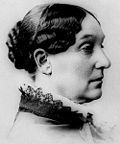- Oregon tax revolt
-
Part of a series on
TaxationTaxation in the
United States
Federal taxation Authority · History
Internal Revenue Service
(Court • Forms • Code • Revenue)
Taxpayer standing
Income tax · Payroll tax
Alternative Minimum Tax
Estate tax · Excise tax
Gift tax · Corporate tax
Capital gains taxState and local taxation State income tax
State tax levels
Sales tax · Use tax
Property tax
Land value taxFederal tax reform-
Competitive Tax Plan
Efficient Taxation of Income
Hall–Rabushka flat tax
Taxpayer Choice Act
USA Tax · Value Added Tax
FairTax · Flat tax
- History
America: Freedom to Fascism
The Law that Never Was
Cheek v. United States
Taxation by country- Australia
British Virgin Islands
Canada · China
Colombia · France
Germany · Hong Kong
India · Indonesia
Ireland · Netherlands
New Zealand · Peru
Russia · Singapore
Switzerland · Tanzania
United Kingdom
United States
European Union -
Tax rates around the world
Tax revenue as % of GDP -
The Oregon tax revolt is a political movement in Oregon which advocates for lower taxes. This movement is part of a larger anti-tax movement in the western United States. The tax revolt, carried out in large part by a series of citizens' initiatives and referendums, has reshaped the debate about taxes and public services in Oregon.
The leaders of the tax revolt include Don McIntire, president of the Taxpayer Association of Oregon, and Bill Sizemore, leader of Oregon Taxpayers United. Much of the money spent to promote these anti-tax measures were provided by out-of-state backers including Americans for Tax Reform headed by Grover Norquist.[1]
Contents
National context and the passage of Measure 5
Inspired in part by Proposition 13 in the neighboring state of California, Oregon voters placed limits to property tax in the Oregon Constitution in 1990 with the passage of Measure 5.[citation needed] A majority of voters were frustrated by the increase in property taxes attributed to rapidly rising property values in the Portland area. Some attribute this home price inflation to an influx of population in the Portland metro, which is surrounded by an urban growth boundary that limits the supply of developable land. Others observe that the situation was much more complex, pointing to the loose monetary policy pursued by Alan Greenspan, including adjustments to the CPI that measured homeowners equivalent rent instead of actual home price, a recovering economy in the region, and numerous other factors.[original research?] Measure 5 shifted the burden of school funding to the state (which levies an income tax) and away from counties.[dubious ]
Measure 5 also equalized school funding throughout the state, which meant that schools in rural areas benefited while schools in Portland saw budgets reduced.[dubious ] The budgetary restraints caused by Measure 5 were responsible for funding cuts that were made in public schools and universities budgets.
Measure 47 and the rise of Bill Sizemore
However, even with the caps on property taxes, the continual increase in property values in Portland, exacerbated by the effects of Measure 5, brought higher tax bills for some residents.[dubious ] This led to Bill Sizemore's Measure 47, which attempted to cap the annual rate at which property taxes could rise. Measure 47 also instituted Oregon's double majority rule, in which local tax levies could only pass in minor elections when voter turnout surpassed half of the registered voters. In November 1996, Measure 47 was passed by the Oregon voters 52.3% to 47.7%.[2] Problems with the legal wording of Measure 47 caused the Oregon Legislature to send Measure 50 to voters in 1997, which clarified Measure 47. During a special election in May 1997, Measure 50 was approved by the voters 55.7% to 44.3%.[3]
Later legislation
The tax revolt manifested itself in a series of budget battles in the Oregon Legislature about school funding, the Oregon Health Plan, and other spending priorities during the late 1990s. Then Governor John Kitzhaber and the Republican leadership in the legislature clashed repeatedly over budget priorities.[citation needed]
In 2000, Don McIntire helped place Measure 8 on Oregon's ballot, which would have limited state spending to 15 percent of personal income for the previous biennium. Measure 8 was defeated by a margin of 43.5% to 56.5%.[4] However, in the same election Oregonians enshrined the so-called "kicker check"—a rebate check given to taxpayers in the event that state revenues sufficiently exceed forecasts—into the state constitution with Measure 86 which passed 62% to 38%.[5]
Anti-tax activists defeated two proposals in 2003 and 2004 (Measure 28 and Measure 30), which were referred to voters by the Oregon State Legislature to increase income taxes temporarily.[citation needed]
Sizemore's group ran into legal problems in 2002. Sizemore sparked the ire of several public employees unions with a series of initiatives aimed at reducing public employee pensions and reducing their political power. The unions responded with the Voter Education Project, which tracked signature gatherers hired by Sizemore to place measures on the ballot. After documenting instances of fraud by signature gatherers, the Oregon Education Association, a teachers' union, successfully sued Sizemore's organization under racketeering laws in 2003.[6] The $2.3 million judgment against Oregon Taxpayer's United severely hurt Sizemore's ability to put measures on the ballot. The fraud allegations also led to the passage of Measure 26 in 2002, which prohibits the payment of signature gatherers on a per-signature basis, and was approved by voters 75% to 25%.[7]
Tax activists generally claim that Oregon's government is wasteful and inefficient, arguing that the government could do better with less. They often highlight programs that they feel are unnecessary.[8] Opponents of the tax revolt argue that passing tax decreases via ballot measure leads to short-sighted policy making, in which voters are enticed to vote with the revolt by lower tax bills and without thinking about the budget problems caused by reduced revenues.[citation needed]
Notable figures in the Oregon tax revolt
- Don McIntire
- Bill Sizemore
- Loren Parks
- Ross Day
Timeline of ballot measures
- Measure 5 (1990)
- Measure 47 (1996) (initiative), Measure 50 (1997) (legislative referral)
- Measure 8 (2000) (failed)
- Measure 86 (2000) (kicker)
- Measure 28 (2003) and Measure 30 (2004) (tax increase measures, defeated)
- Measure 41 (2006) and Measure 48 (2006) (both failed)
- Measure 59 (2008) (failed)
- Measures 66 and 67 (2010) (tax increase referenda, passed)
See also
References
- ^ Willamette Week | Lead Story
- ^ "Official Results, State Measure No. 47, November 5, 1996 General Election". Oregon Secretary of State. http://www.sos.state.or.us/elections/nov596/results/m47.htm. Retrieved 2008-05-17.
- ^ "Official Results State Measure No. 50, May 20, 1997: Statewide Special Election". Oregon Secretary of State. http://www.sos.state.or.us/elections/may2097/other.info/m50abst.htm. Retrieved 2008-05-17.
- ^ "November 7, 2000 General Election State Measure No. 8". Oregon Secretary of State. http://www.sos.state.or.us/elections/nov72000/other.info/m8.htm. Retrieved 2008-05-17.
- ^ "November 7, 2000 General Election State Measure No. 86". Oregon Secretary of State. http://www.sos.state.or.us/elections/nov72000/other.info/m86.htm. Retrieved 2008-05-17.
- ^ Hamilton, Don (May 13, 2003). "Sizemore sees his troubles doubled". The Portland Tribune. http://www.portlandtribune.com/archview.cgi?id=18056. Retrieved 2007-01-20.
- ^ "November 5, 2002 General Abstract of Voters". http://www.sos.state.or.us/elections/nov52002/abstract/m26.pdf.
- ^ "A Vision For Public Finance In Oregon" (PDF). Oregon Business Council Public Finance Task Force. April 15, 1998. pp. 16. http://www.orbusinesscouncil.org/docs/vision.pdf. Retrieved 2008-05-17.
External links
- Embattled anti-tax advocate Bill Sizemore under fire again
- Taxpayer Association of Oregon
- Oregon Territory program on the tax revolt Part 1 Part 2(m3u audio stream)
- Fund Oregon's Future Today
- The Great Tax Revolt of 1994: Will anti-tax initiatives sweep the states this fall? from October 1994 Reason magazine
Modern history of Oregon (1890–present) Topics - Tax revolt
- Governors
- Bottle Bill
- Centennial Tokens
- Roll on Columbia
- Meier & Frank
- Willamette Industries
- Direct Legislation League

Events Places People - Terry Baker
- George Chamberlain
- James A. Fee
- David B. Frohnmayer
- Neil Goldschmidt
- Matt Groening
- Mark Hatfield
- Nan Wood Honeyman
- Ken Kesey
- Phil Knight
- Hall S. Lusk
- Tom McCall
- Douglas McKay
- Charles McNary
- Wayne Morse
- Maurine Brown Neuberger
- Norma Paulus
- Steve Prefontaine
- Jack Ramsay
- Barbara Roberts
- James H. Weaver
- History of Oregon's native peoples
- of Oregon to 1806
- of pioneers in Oregon
- of Oregon in modern times
Topics in Oregon legislation Crime and sentencing Capital punishment · Measure 11 (1994) (mandatory minimum sentencing) · Measure 40 (1996) etc. (victims' rights) Abigail Scott Duniway was instrumental in establishing women's right to vote in Oregon.
Abigail Scott Duniway was instrumental in establishing women's right to vote in Oregon.
Elections and voting Gay rights Environment Land use Health care Minimum wage Taxation Tax revolt · Measure 5 (1990) (landmark tax law) · Measures 47 (1996) and 50 (1997) (adjusted Measure 5) · Kicker (tax rebate)Miscellaneous Influential people Background, further reading Categories:- History of Oregon
- Politics of Oregon
- Taxation in Oregon
-
Competitive Tax Plan
Wikimedia Foundation. 2010.

